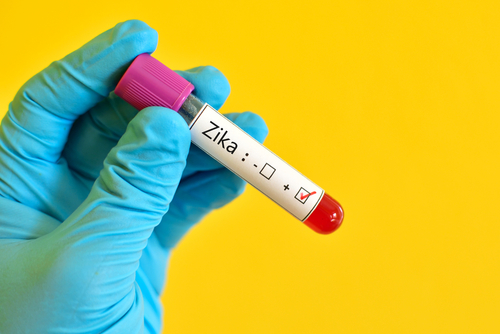
The National Institutes of Health (NIH) launched a clinical trial this week for an experimental vaccine to prevent Zika virus infections, an effort that comes after local transmission of the virus hit a neighborhood in Florida.
“Given the Zika situation internationally and in the United States, its territories and most recently in Florida with locally acquired cases, we cannot afford to delay the work needed to develop a safe and effective vaccine to prevent Zika virus infection,” Anthony Fauci, director of the National Institute of Allergy and Infectious Diseases (NIAID), said in a telebriefing on Wednesday.
The clinical trial will determine whether the vaccine is safe and if it generates an immune response among 80 healthy volunteers aged 18-35.
Initial data from the Phase 1 trial is expected by the end of 2016. If the results show a high level of safety and immune response, NIAID plans to start a larger Phase 2 trial in a Zika-affected area in early 2017.
Scientists at NIAID’s Vaccine Research Center, part of the NIH, developed the Zika virus investigational DNA vaccine earlier this year. The Zika virus candidate being tested this week includes a small piece of DNA that scientists have engineered to encode Zika virus proteins. Once injected into the arm of volunteers, the proteins will hopefully stimulate an immune response against Zika virus, Fauci said.
The experimental DNA vaccine is similar to a vaccine that NIAID developed for West Nile virus, which was found to be safe and induced an immune response in a Phase 1 clinical trial.
Fauci said that women of child-bearing age and their sexual partners are the target population for the vaccine, rather than women who are already pregnant.
“It is our hope that this study will yield the encouraging results necessary to move to a Phase 2 clinical trial,” Fauci said. “However, without congressional approval of additional funding for Zika efforts, the planning and preparation necessary to conduct a Phase 2 trial will slow down significantly, effectively impeding our smooth process on the vaccine development front.”
President Obama called for $1.9 billion in emergency funds to fight the Zika virus in February, but Congress has failed to agree on a funding plan. No congressional action is expected to be taken on the Zika emergency funding issue until after Sept. 5.
As a stopgap measure until Zika funds are provided by Congress, the Centers for Disease Control and Prevention awarded more than $16 million to 40 states and territories on Tuesday to help detect microcephaly, a serious birth defect of the brain caused by Zika virus infection.
Zika virus is transmitted by the bites of two species of mosquitos. The virus can also be transmitted by sexual transmission, blood transfusion and from pregnant women to their fetuses. There is currently no vaccine to prevent Zika.
According to the CDC, more than 50 countries and territories have active Zika virus transmission. In the United States and its territories, more than 6,400 Zika cases have been reported, including more than 800 Zika-affected pregnancies.
Many of the reported Zika cases in the continental U.S. involved people who have traveled to Zika-infected countries. The recent Zika cases in the Miami area, however, were the nation’s first locally transmitted infections.
The CDC and Florida health officials have issued a warning to pregnant women who have traveled to or who live in an area north of downtown Miami where the Zika virus is being spread by mosquitoes.




